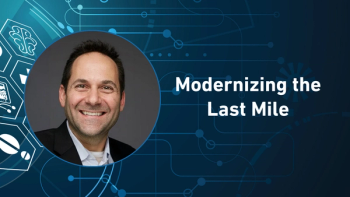
As the clouds part on Physicians' Sunshine Act, doctors waffle between concern and indifference
Results of a survey panel by QPharma, presented at PDMA Sharing Conference, show a wide spread of reactions and concerns over agg-spend rules
August 1 was the formal date for pharma companies to begin tracking aggregated spending on physicians and other prescribers under the Affordable Care Act (which contains what had been called the
Survey results were presented by Dr. Peter Shaw, formerly president of MD Mindset, which was acquired by QPharma (Morristown, NJ) earlier this year; Shaw is now chief medical officer at QPharma. He spoke at the PDMA Sharing Conference (Baltimore, MD; Sept. 30-Oct. 2). The survey, based on 300 primary-care and specialist responses, gave such results as these:
- 40% of physicians currently accept food and travel from industry; 37% accept consulting and speaking fees; and 17% accept research grants. Overall, 74% of respondents allow for sales rep detailing.
- 22% say they “fully understand” the Sunshine Act; 7% have “no understanding” and the remainder fall between “minimal” and “some” understanding.
- 79% are aware that payments for sponsored research and consulting with industry are reportable to CMS; lesser percentages are aware of the details such as meals or third-party transfers. 74% are aware that these data will be made publicly available.
- On the Big Question—“Do you feel your patients will lose trust in you if you have a relationship with [industry]?”—28% said “yes;” 43% said “no;” 16% said “don’t know;” and, somewhat puckishly, 3% said “don’t care.”
Of importance to industry marketers, QPharma asked the question whether the Sunshine Act wold have an impact on physicians’ practice--specifically, "interaction with reps." The cumulative response (on a five-point scale) was 2.93—which is about as close to a “neutral” rating as one could get. But hidden within this cumulative score is the disparity of views: 26% of physicians rated the impact on rep relations as “1” (indicating high impact) and 25% rated the same criterion as “5” (indicating least impact). In other words, the cumulative rating seems to be that the Sunshine Act will be of middling importance because a quarter think it will have high impact while a quarter think it will have low impact.
Relations between prescribers and the pharma industry are evolving in light of the Sunshine Act, but the real light—and possibly heat—will come after CMS publishes the spend data that industry reports to it. This will occur at some point next year.
Newsletter
Stay ahead in the life sciences industry with Pharmaceutical Commerce, the latest news, trends, and strategies in drug distribution, commercialization, and market access.



